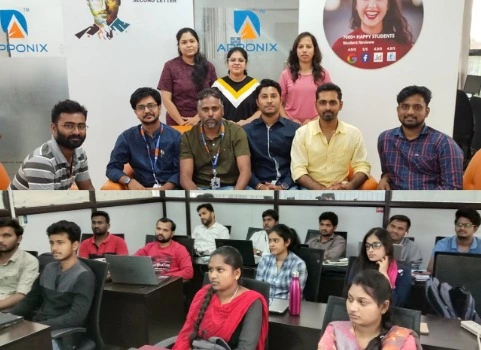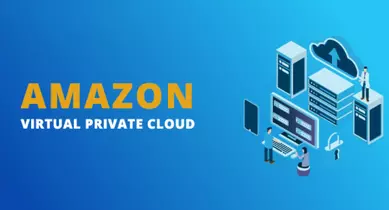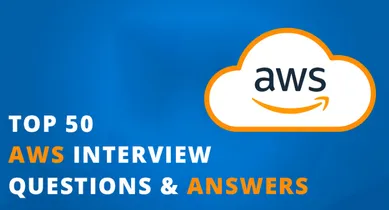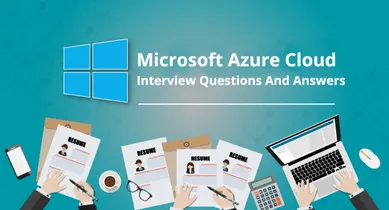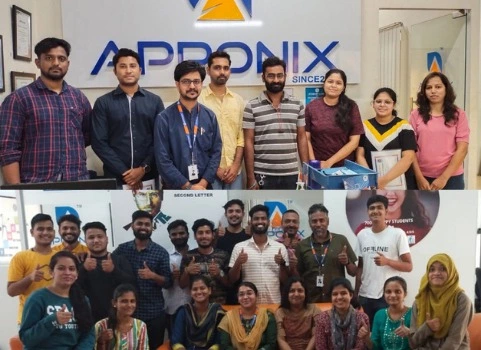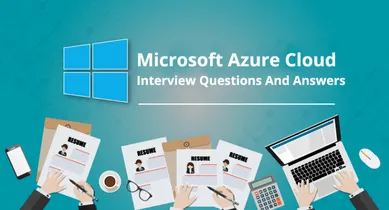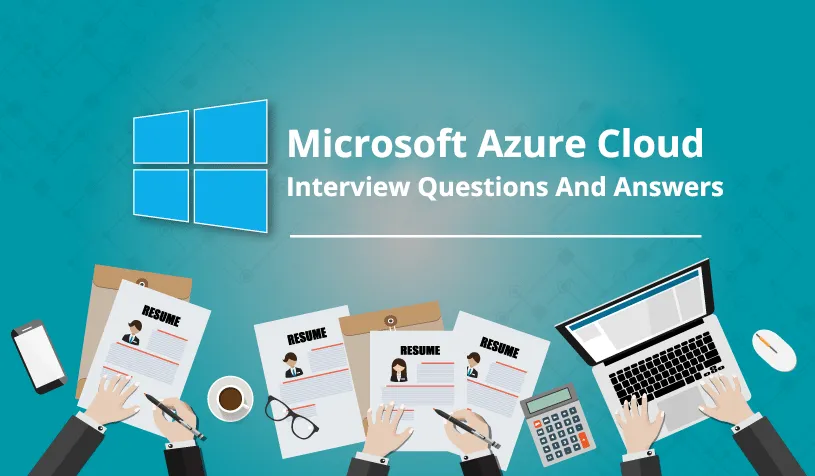Microsoft Azure training in Akola
Get Azure certified in just 5 weeks, Azure cloud course is delivered by a working professional with excellent practical experience
2000+ Ratings
3000+ Happy Learners
MS Azure Cloud AZ 104 Videos
Skills Covered in MS Azure Cloud
MS Azure Cloud Training Key Features
Our Alumini Working in MS Azure Cloud




































MS Azure Cloud Course Reviews
I wanted to learn Azure Cloud and I went to Apponix. I worked in this area before so I already know some knowledge about azure. But the way how Shailendra the instructor explain to us this was amazing. Typing, talking, and teaching at the same time, His explanation was clear & interactive.
Apponix Technology institute is a very good place to learn MS Azure. Trainer has very good knowledge about Azure. Will refer people to Apponix who are interested in taking Azure training. Have great learning.
I have taken an MS Azure course from Apponix center. I am very much satisfied with this course's contents and teaching skills. Trainers have very good knowledge about the course content.
Our Recent Placements
Classroom Training
Classroom Training

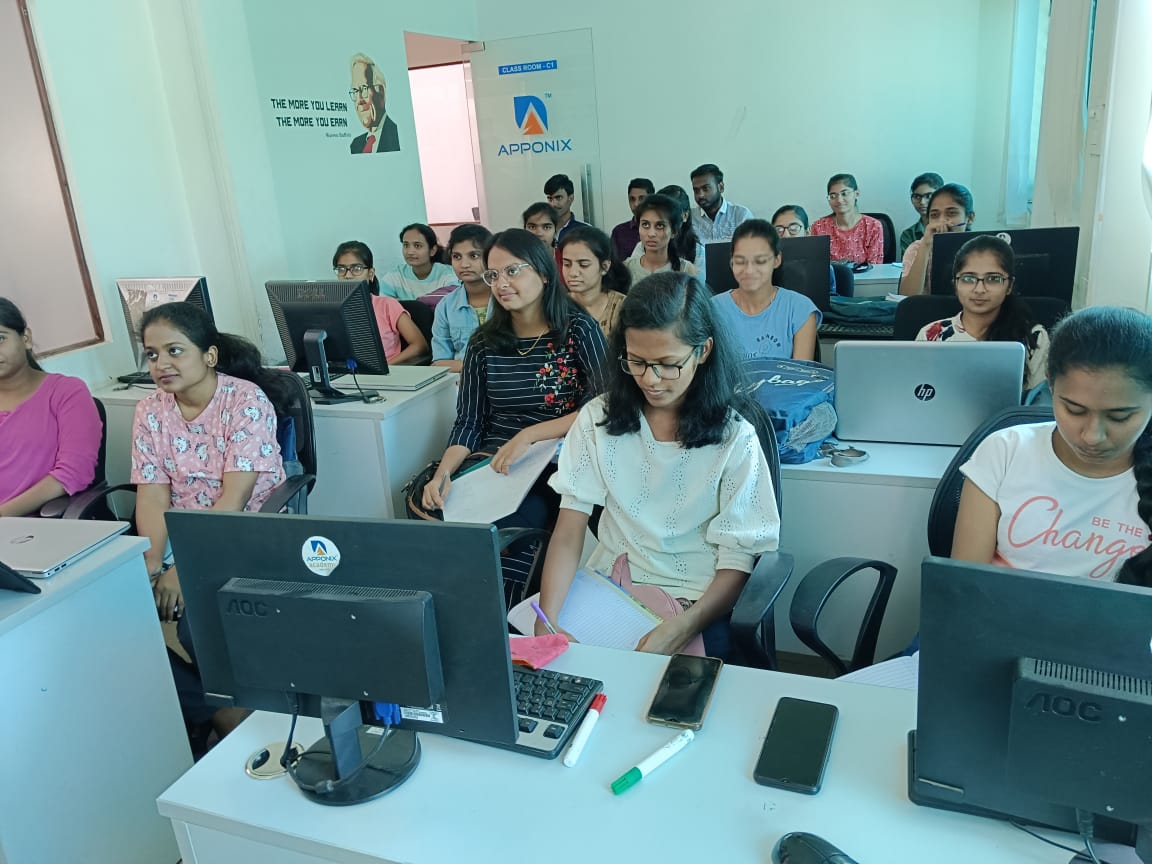
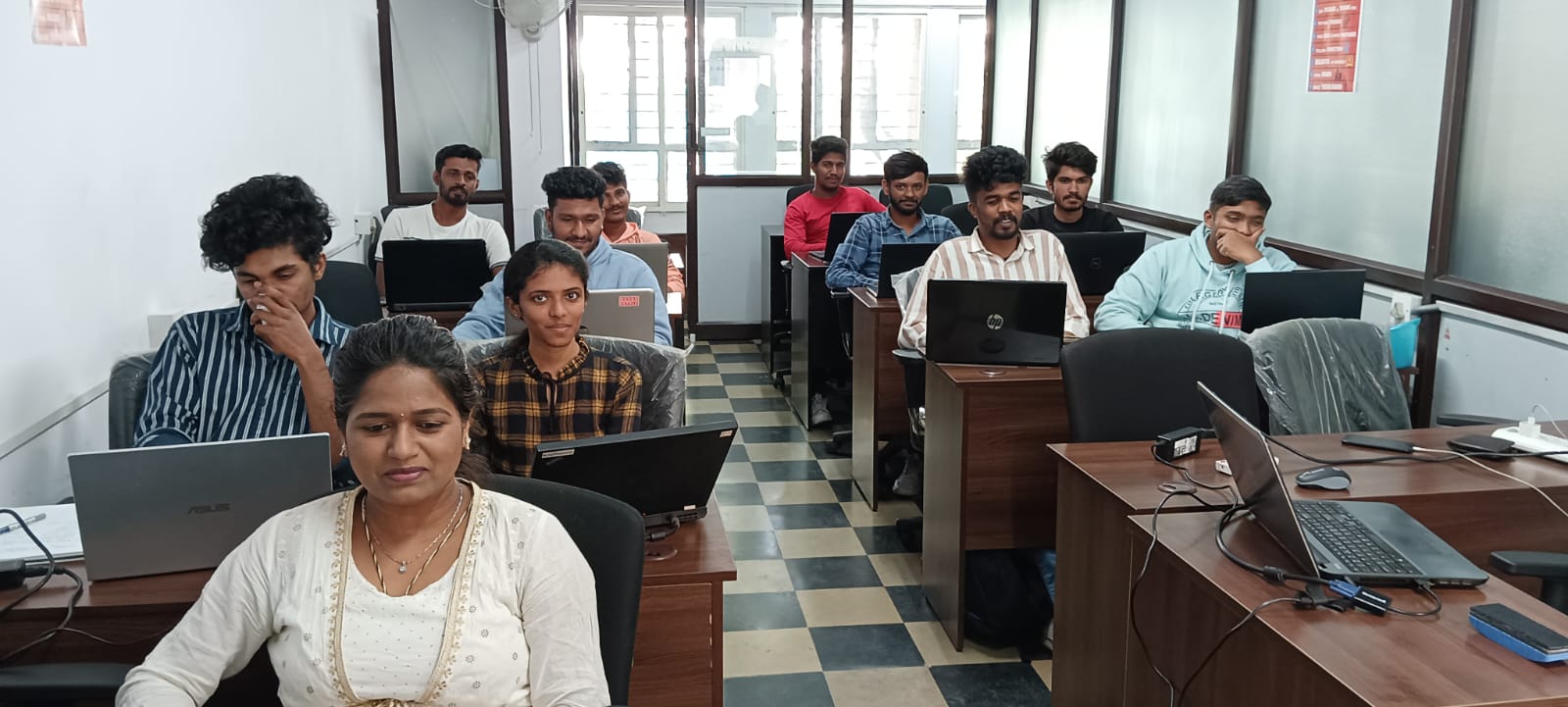
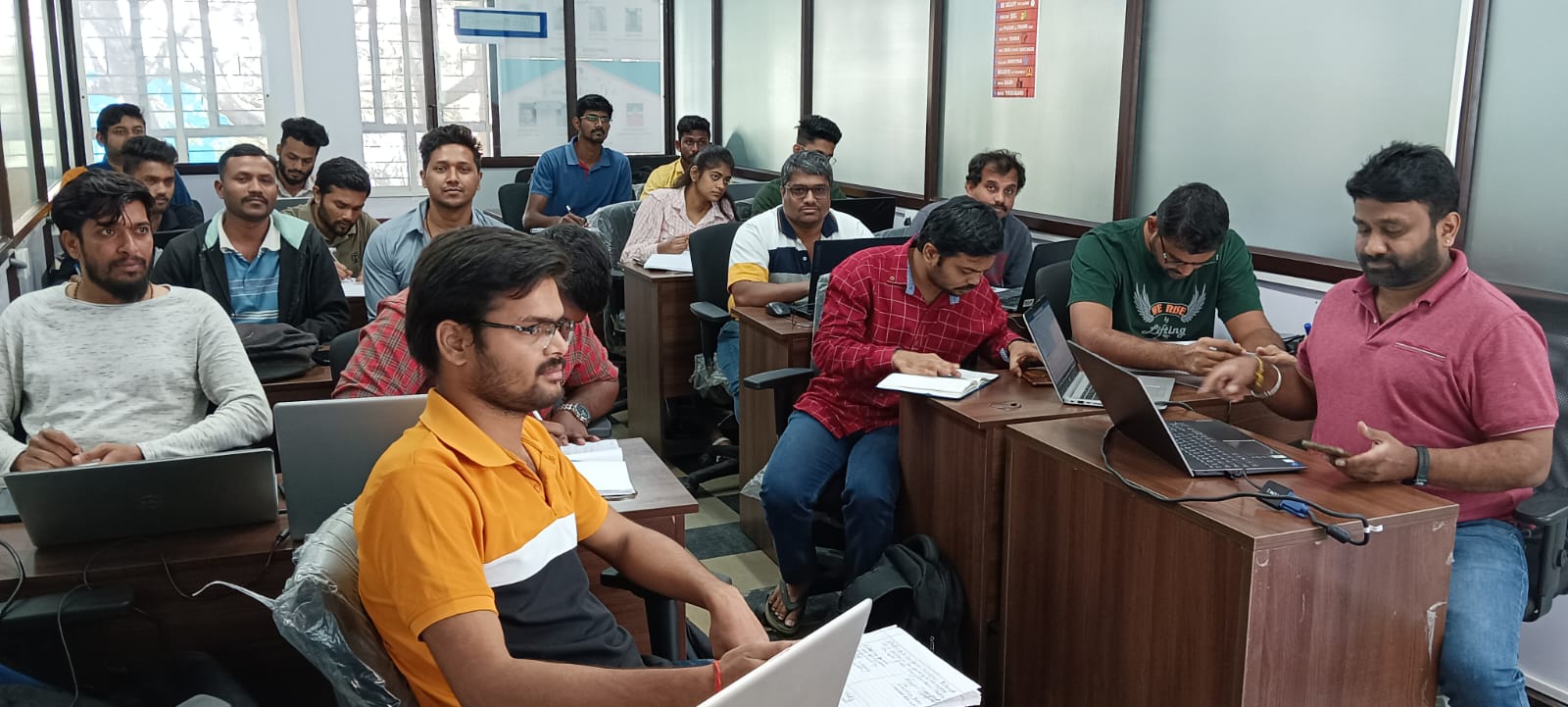





Fees & Training Options
Online Training
- Interactive Live Training Sessions
- 40+ Hrs Practical Learning
- Delivered by Working Professionals
- Realtime Azure deployment Projects
- Azure AZ-104 Certification Assistance
- 1 Year Access to Recorded Sessions
- Daily 2 Hrs or Weekend 10 Hrs
- Placement assistance will be provided
- Doubt Clearing Sessions
- Regular assignments will be given and assessments will be taken.
MS Azure 104 Training Syllabus
Pre-requisites
This course is an ideal choice for IT professionals, cloud beginners, experienced IT administrators, cloud developers, and DevOps experts. Interested individuals should be familiar with networking, virtualization, cloud security, and cloud storage before they apply for this course for the best results.
MS Azure Cloud Course Syllabus
In this module, you will learn how to secure identities with Azure Active Directory, and implement users and groups.
Lessons
o Azure Active Directory.
o Users and Groups
LAB : Manage Azure Active Directory Identities
After completing this module, students will be able to:
o Secure and manage identities with Azure Active Directory.
o Implement and manage users and groups.
In this module, you will learn about managing your subscriptions and accounts, implementing Azure policies, and using Role-Based Access Control.
Lessons
o Subscriptions and Accounts
o Azure Policy o Role-based Access Control (RBAC)
Lab : Manage Subscriptions and RBAC
Lab : Manage Governance via Azure Policy
After completing this module, students will be able to: o Implement and manage Azure subscriptions and accounts. o Implement Azure Policy, including custom policies. o Use RBAC to assign permissions.
In this module, you will learn about the tools an Azure Administrator uses to manage their infrastructure. This includes the Azure Portal, Cloud Shell, Azure PowerShell, CLI, and Resource Manager Templates. This module includes:
Lessons
o Azure Resource Manager
o Azure Portal and Cloud Shell
o Azure PowerShell and CLI
o ARM Templates
Lab : Manage Azure resources by Using the Azure Portal
Lab : Manage Azure resources by Using ARM Templates Lab : Manage Azure resources by Using Azure PowerShell
Lab : Manage Azure resources by Using Azure CLI
After completing this module, students will be able to:
o Leverage Azure Resource Manager to organize resources.
o Use the Azure Portal and Cloud Shell.
o Use Azure PowerShell and CLI.
o Use ARM Templates to deploy resources.
In this module, you will learn about basic virtual networking concepts like virtual networks and subnetting, IP addressing, network security groups, Azure Firewall, and Azure DNS.
Lessons
o Virtual Networks
o IP Addressing
o Network Security groups
o Azure Firewall
o Azure DNS
Lab : Implement Virtual Networking
After completing this module, students will be able to:
o Implement virtual networks and subnets.
o Configure public and private IP addressing.
o Configure network security groups.
o Configure Azure Firewall.
o Configure private and public DNS zones.
In this module, you will learn about intersite connectivity features including VNet Peering, Virtual Network Gateways, and Site-to-Site Connections.
Lessons
o VNet Peering
o VPN Gateway Connections
o ExpressRoute and Virtual WAN
Lab : Implement Intersite Connectivity
After completing this module, students will be able to:
o Configure VNet Peering.
o Configure VPN gateways.
o Choose the appropriate intersite connectivity solution.
In this module, you will learn about network traffic strategies including network routing and service endpoints, Azure Load Balancer, Azure Application Gateway, and Traffic Manager.
Lessons
o Network Routing and Endpoints
o Azure Load Balancer
o Azure Application Gateway
o Traffic Manager
Lab : Implement Traffic Management
After completing this module, students will be able to:
o Configure network routing including custom routes and service endpoints.
o Configure an Azure Load Balancer.
o Configure and Azure Application Gateway.
o Choose the appropriate network traffic solution.
In this module, you will learn about basic storage features including storage accounts, blob storage, Azure files and File Sync, storage security, and storage tools.
Lessons
o Storage Accounts
o Blob Storage
o Storage Security
o Azure Files and File Sync
o Managing Storage
Lab : Manage Azure storage
After completing this module, students will be able to:
o Create Azure storage accounts.
o Configure blob containers.
o Secure Azure storage.
o Configure Azure files shares and file sync.
o Manage storage with tools such as Storage Explorer.
In this module, you will learn about Azure virtual machines including planning, creating, availability and extensions.
Lessons
- Virtual Machine Planning
- Creating Virtual Machines
- Virtual Machine Availability
- Virtual Machine Extensions
Lab : Manage virtual machines
After completing this module, students will be able to:
- Plan for virtual machine implementations.
- Create virtual machines.
- Configure virtual machine availability, including scale sets.
- Use virtual machine extensions.
In this module, you will learn administer serverless computing features like Azure App Service, Azure Container Instances, and Kubernetes.
Lessons
- Azure App Service Plans
- Azure App Service
- Container Services
- Azure Kubernetes Service
Lab : Implement Web Apps
Lab : Implement Azure Container Instances
Lab : Implement Azure Kubernetes Service
After completing this module, students will be able to:
- Create an app service plan.
- Create a web app.
- Implement Azure Container Instances.
- Implement Azure Kubernetes Service.
In this module, you will learn about backing up files and folders, and virtual machine backups.
Lessons
- File and Folder Backups
- Virtual Machine Backups
Lab : Implement Data Protection
After completing this module, students will be able to:
- Backup and restore file and folders.
- Backup and restore virtual machines.
In this module, you will learn about monitoring your Azure infrastructure including Azure Monitor, alerting, and log analytics.
Lessons
- Azure Monitor
- Azure Alerts
- Log Analytics
- Network Watcher
Lab : Implement Monitoring
After completing this module, students will be able to:
- Use Azure Monitor.
- Create Azure alerts.
- Query using Log Analytics.
- Use Network Watcher.
+91 80505-80888
Our Top Instructors
Overview of MS Azure Cloud Training Course
- Sure, here are 5 lines of an overview of MS Azure Cloud certification training:
- The MS Azure Cloud certification training is designed to provide students with the necessary skills to manage cloud-based solutions on the Microsoft Azure platform.
- The course covers a range of topics, including Azure Virtual Machines, Azure Storage, Azure Networking, and Azure Active Directory.
- Students will learn how to deploy, configure, monitor, and troubleshoot various Azure services and applications.
- The training is led by experienced trainers who have real-world experience in designing and implementing Azure-based solutions.
- Upon completion of the course, students will be prepared to take the MS Azure certification exams and will be equipped with the skills to pursue careers in cloud computing.
- Overall, the MS Azure Cloud certification training is an excellent choice for individuals who want to gain expertise in managing and deploying cloud-based solutions on the Microsoft Azure platform.
Benefits of learning MS Azure Cloud
- Taking an MS Azure Cloud certification course has several benefits, including gaining knowledge and skills to design and implement secure, scalable, and highly available cloud solutions. By earning a certification, you will become a recognized expert in Azure cloud technologies and will have a competitive edge in the job market. The course provides hands-on experience with Azure tools and services, enabling you to deploy, configure, and manage applications in the cloud. By taking the course, you will also learn how to optimize and monitor your cloud solutions to ensure efficient operation and cost-effectiveness. Additionally, you will gain an understanding of how to integrate cloud technologies with other systems and technologies to create seamless workflows and maximize productivity. Overall, taking an MS Azure Cloud certification course can boost your career and enhance your skills and knowledge in cloud computing.
Related job roles
- Azure Administrator
- Azure Developer
- Azure Solution Architect
- Azure Cloud Consultant
- Azure DevOps Engineer
- Cloud administrator
MS Azure Cloud 104 Training
Are the online classes live or pre-recorded?
All online classes offered here at Apponix are live sessions as we believe that clearing doubts during the class ensure maximum learning.
Will I get the class recording if I miss a class?
All course session videos will be made available to you even if you miss a class.
What are the benefits of taking this course?
As there is a growing demand for Microsoft Azure Cloud skills, the salary is also constantly increasing for Microsoft Azure Cloud skills,
As per payscale.com Average salary for Microsoft Azure Cloud Architect is Rs 9,03,000 per year.
What does an Azure admin do?
An azure expert will be given the responsibility of managing Azure solutions and infrastructure. They will also plan Azure-based solutions to meet the unique needs of the clients he or they will be handling.
What is MS Azure?
Microsoft Azure is a cloud service from Microsoft Corporation where businesses can manage, build and deploy applications using a wide array of Azure-based frameworks and tools.

















